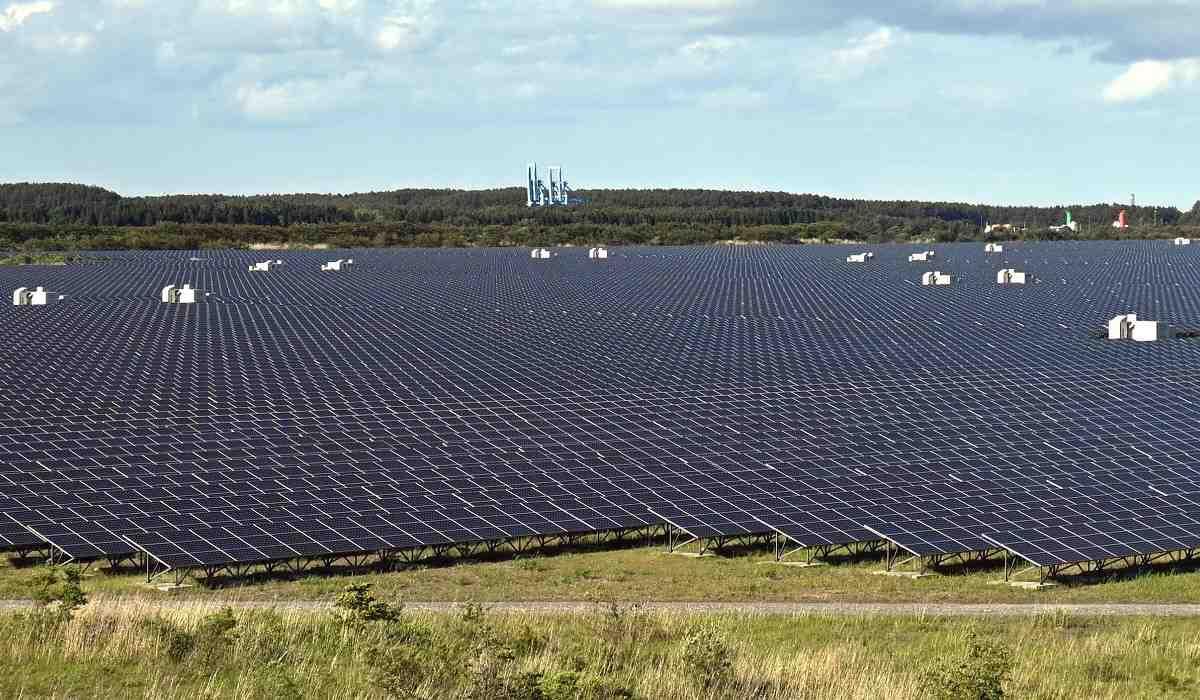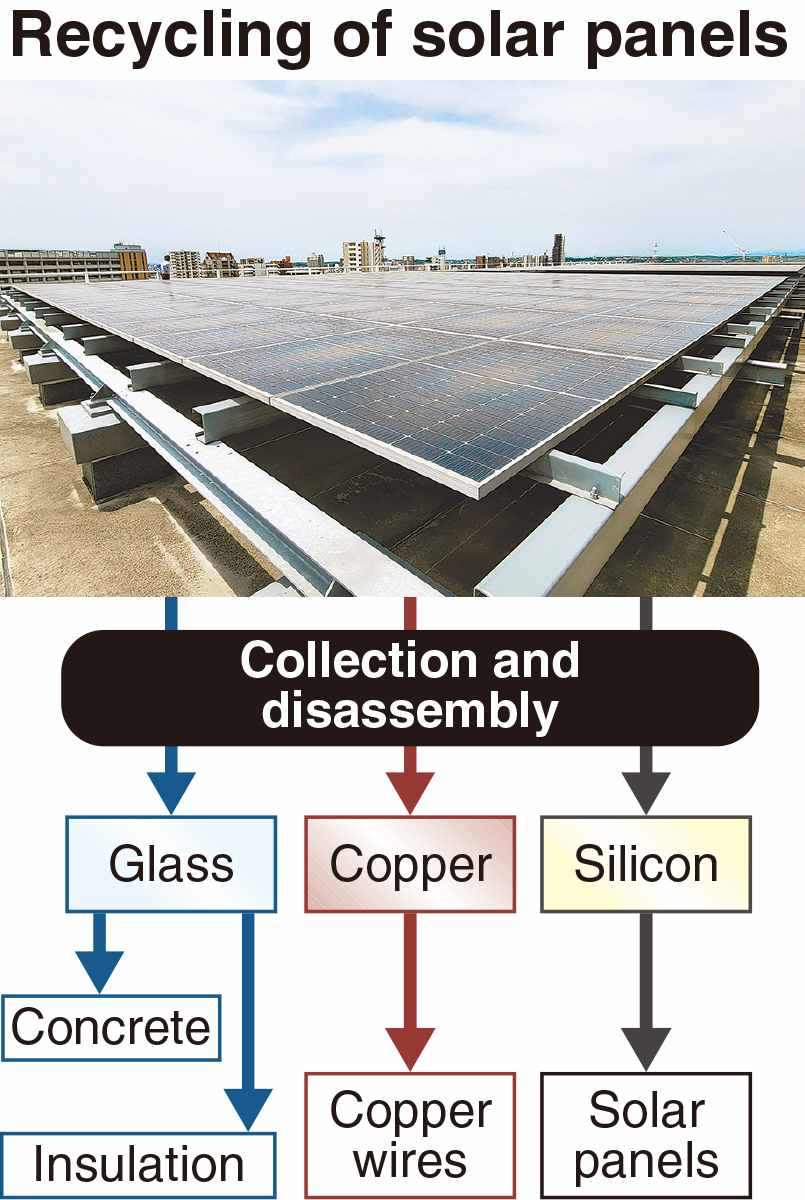Solar Panel Recycling Could Soon Be Mandatory in Japan; Mass Disposal in 2030s Poses Environmental Threat

A solar power generation facility in Rokkasho, Aomori Prefecture, with many solar panels (photo taken in May 2023)
20:00 JST, September 3, 2024
The government plans to make it mandatory to recycle solar panels, it has been learned. While the number of solar panels in Japan began increasing in the late 2010s, many of them will reach the end of their useful lives in the 2030s, which could lead to their mass disposal. Given this, the government will require companies and others to recycle solar panels to reduce the impact on the environment, according to sources.
The government also is considering introducing penalties for those who discard or abandon solar panels instead of recycling them, the sources said.
The Economy, Trade and Industry Ministry and the Environment Ministry reportedly will set up a panel of experts later this month to come up with specific methods for recycling solar panels and compile a package of support measures such as financial assistance as early as the end of this year. They will submit a related bill to the ordinary Diet session next year.
Hopes grew for solar power as an alternative to nuclear and thermal power generation after the 2011 Great East Japan Earthquake, and solar panels rapidly spread across Japan. Total installed solar power capacity reached 85 million kilowatts at the end of fiscal 2022, giving Japan the third-largest installed capacity in the world.

At present, recycling of solar panels is not mandatory and many of them go into landfills. The most common type of panel, with silicon solar cells, contains lead, and some panels contain other toxic materials such as cadmium.
Since solar panels have a long lifespan of 20 to 30 years, their disposal has not yet had a significant impact on the environment. However, one estimate says that more than 170,000 tons of solar panels will be discarded in the late 2030s. Without a proper system in place, disposal could cause a big hit to the environment.
Materials recovered from used solar panels such as glass and silicon will be reused to make more effective use of resources. The panel of experts will discuss how to collect solar panels that are easy to recycle.
Looking abroad, the European Union has required the recycling of used solar panels since 2012. In the United States, more and more states are introducing such regulations, while China is said to be considering regulating the disposal of solar panels.
Besides requiring recycling of solar panels, the government also will promote the use of perovskite solar cells (PSCs), which were invented in Japan. PSCs are light weight, thin and foldable, allowing them to be used on the walls of buildings and car roofs. However, PSCs have a shorter lifespan than solar panels at about 10 years. That has the government considering subsidies to partially cover recycling costs, as it aims to foster a recycling system for PSCs.
Since many of the materials for producing PSCs, such as iodine, can be procured domestically, the cells are seen as important for national security. If Japan succeeds in developing PSCs as a substitute for the cheap Chinese solar panels that currently dominate both domestic and foreign markets, it could lead the global market.
Top Articles in Politics
-

Japan PM Takaichi’s Cabinet Resigns en Masse
-

Sanae Takaichi Elected Prime Minister of Japan; Keeps All Cabinet Appointees from Previous Term
-

Japan’s Govt to Submit Road Map for Growth Strategy in March, PM Takaichi to Announce in Upcoming Policy Speech
-

LDP Wins Historic Landslide Victory
-

LDP Wins Landslide Victory, Secures Single-party Majority; Ruling Coalition with JIP Poised to Secure Over 300 seats (UPDATE 1)
JN ACCESS RANKING
-

Producer Behind Pop Group XG Arrested for Cocaine Possession
-

Japan PM Takaichi’s Cabinet Resigns en Masse
-

Man Infected with Measles Reportedly Dined at Restaurant in Tokyo Station
-

Israeli Ambassador to Japan Speaks about Japan’s Role in the Reconstruction of Gaza
-

Videos Plagiarized, Reposted with False Subtitles Claiming ‘Ryukyu Belongs to China’; Anti-China False Information Also Posted in Japan






















